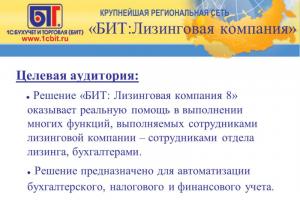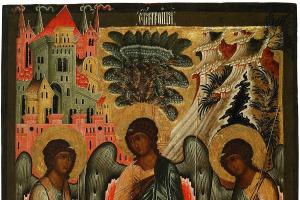History of the faculty
On August 31, 1943, the Soviet government decided to create a Faculty of International Relations at Moscow State University with a duration of study of four years and admission to the first year of 200 people, mainly males.
On October 14, 1944, on the basis of this faculty, 250 people were admitted to the 1st year. In September 1945, 400 people became first-year students. In February 1947, a decision was made on a five-year training period.
For more than half a century, during numerous transformations, restructuring, reforms and reorganizations at MGIMO, when some faculties were abolished and new divisions were created, the Faculty of International Relations continued not only to exist, but also to develop: it included entire faculties, even universities (so was with the Institute of Oriental Studies); departments and students were separated to create other structures (in particular, when creating the Faculty of International Law in the city, the Faculty of International Journalism in the city, the Faculty of Political Science in the city).
The first reorganization of the faculty occurred in 1954, when the Council of Ministers adopted a resolution on the merger of MGIMO and the Institute of Oriental Studies in order to “streamline the training of specialists” in international relations, philology and the history of countries of the foreign East. The existing three faculties - MO, MP and MEO - were transformed into two - Western and Eastern. Subsequently, several reorganizations of the university were carried out, as a result of which the structure of the organization took on a modern form.
Deans
- 1976-1982 - Vladimir Mikhailovich Kulagin
- 1982-1986 - Mikhail Afanasyevich Perezhogin
- Since 1991 - Yuri Alekseevich Bulatov
Training of bachelors and specialists
The faculty's curricula require compulsory study of 2 foreign languages from the first year of study. The curricula of the Faculty of International Relations are focused on training professional diplomats, political analysts and consultants for the widest sphere: the Ministry of Foreign Affairs of Russia, government agencies, interstate organizations (UN, UNESCO, OSCE, CIS, etc.), non-state structures (large and medium-sized businesses, political parties and social movements; consulting, analytical, research, educational centers, media, international and Russian non-governmental organizations, etc.).
Faculty departments
- Department of World and National History
- Department of International Relations and Foreign Policy of Russia
- Department of Oriental Studies
- Department of World Economics
- Department of History and Politics of Europe and America
- Department of Diplomacy
Created in 1979.
- Department of European Integration
- Department of English No. 1
- Department of German Language
- Department of Chinese, Vietnamese, Burmese, Lao, Thai and Khmer Languages
- Department of Indo-Iranian and African Languages
- Department of Scandinavian, Finnish, Dutch and Greek Languages
- Department of Japanese, Korean, Indonesian and Mongolian Languages
- Department of Languages of the Near and Middle East
- Department of Languages of Central and South-Eastern Europe
- Department of Physical Education
Links
International relations| International legal | International economic relations | Political Science | International journalism | International Business and Business Administration | Institute of Foreign Economic Relations | | Institute of European Law | International Institute for Energy Policy and Diplomacy | Faculty of Basic Training | Faculty of Additional Professional Education | European Training Institute |
Wikimedia Foundation.
2010.
See what the “Faculty of International Relations MGIMO” is in other dictionaries:
The oldest faculty of MGIMO (U) of the Ministry of Foreign Affairs of Russia. The faculty trains highly qualified specialists in the field of international relations and diplomacy for the Russian Foreign Ministry, its foreign agencies, government departments, public organizations,... ... Wikipedia
The Moscow State Institute of International Relations (University) is one of the country's oldest university centers for training international specialists. The university is a subordinate educational institution... ... Encyclopedia of Newsmakers
The Faculty of International Journalism is one of the main faculties of MGIMO University, established in 1968. In the university environment it is better known as MF. Dean Yaroslav Skvortsov (took office in 2005). This is the first faculty in Russia ... Wikipedia - Moscow State Institute of International Relations (University) of the Ministry of Foreign Affairs of the Russian Federation (MGIMO (u) MFA of Russia MGIMO University) Motto Tradition of being the first Year of foundation ... Wikipedia
Moscow State Institute of International Relations (University) of the Ministry of Foreign Affairs of the Russian Federation (MGIMO (u) MFA of Russia MGIMO University) ... Wikipedia
- (Moscow State Institute of International Relations, MGIMO University), founded in 1944. The university has 8 faculties: international relations, international law, international economic relations, political science, ... ... encyclopedic Dictionary
The Moscow State Institute of International Relations (University) of the Ministry of Foreign Affairs of the Russian Federation (MGIMO) trains Russian and foreign students in such areas as world economics, international relations, political science, journalism, law, regional studies and public relations. The training of specialists in demand by many organizations is carried out by six institutes and seven faculties. At the military department of the university, students receive an additional specialty - military translator, MBA programs and language centers operate.
general information
Federal State Autonomous Educational Institution of Higher Education "Moscow State Institute of International Relations (University) of the Ministry of Foreign Affairs of the Russian Federation"
License
No. 01593 valid indefinitely from 08/12/2015
Accreditation
No. 01522 is valid from 11/18/2015 to 05/06/2021
Monitoring results of the Ministry of Education and Science for MGIMO
| Index | 14 year | 15 year | 16 year | 17 year |
| Performance indicator (out of 7 points) | 5 | 5 | 6 | 6 |
| Average Unified State Examination score for all specialties and forms of study | 88.56 | 83.82 | 86.58 | 87.55 |
| Average Unified State Examination score of those enrolled on the budget | 96.68 | 94.14 | 95.62 | 95.2 |
| Average Unified State Examination score of those enrolled on a commercial basis | 84.96 | 78.89 | 81.68 | 82.96 |
| Average minimum Unified State Exam score for all specialties for full-time students enrolled | 71.11 | 65.23 | 68.58 | 62.64 |
| Number of students | 7092 | 7216 | 7635 | 8096 |
| Full-time department | 6670 | 6871 | 7246 | 7731 |
| Part-time department | 422 | 345 | 389 | 365 |
| Extramural | 0 | 0 | 0 | 0 |
| Full report |
Description
About the university
The Moscow State Institute of International Relations (University) of the Ministry of Foreign Affairs of the Russian Federation is a unique educational and scientific center, known not only in Russia but also abroad. University graduates have high intelligence and outlook and receive the best education that meets international standards.
Education at MGIMO
At the university, students can receive higher education in seven faculties: international relations, international law, international economic relations, political science, international journalism, international business and business administration and applied economics and commerce. The university also includes five institutes:
- International Institute of Management, where civil servants working in regional administration undergo training or retraining in their specialty;
- Institute of European Law, where working lawyers improve their own qualifications in the field of European law in order to become more competitive and successful in jurisprudence;
- International Institute of Energy Policy and Diplomacy, which trains highly qualified specialists in the field of geopolitics or energy diplomacy who will be able to successfully resolve pressing issues in this area;
- the Institute of International Relations and Management, created only last year, where training of specialists in this field is conducted exclusively in English;
- The European Educational Institute at MGIMO (U) of the Russian Ministry of Foreign Affairs, which admits graduates of universities in the Russian Federation, the CIS and other foreign countries who will be able to improve their qualifications, and therefore their competitiveness in the labor market in the fields of law, economics or politics of the European Union.
MGIMO operates a School of Business and International Competence, where students can take advanced training courses or completely retrain from another specialty in order to have more employment opportunities.
At the university you can take courses at the Faculty of Pre-University Training. Here the children have the opportunity to improve their language skills, both in Western languages and rare Eastern ones.
At the moment, MGIMO has a multi-level education system. Here, students can first obtain a bachelor's degree after studying for 4 years, and then after 2 years a master's degree. The student’s education is carried out according to the curriculum, which includes teaching two foreign languages, studying mathematical and natural science disciplines, humanitarian and socio-economic disciplines, as well as disciplines in the specialty chosen by the student. At the end of their education, all students receive an international diploma.
Material and technical base of the university
The university has everything necessary for students to receive the highest quality education at the highest level. For this purpose, MGIMO has high-quality material and technical support. On the territory of the university there are:
- a scientific library containing many textbooks, teaching aids and books, both in Russian and in foreign languages;
- computer classes, where students study the latest information systems and computer programs necessary for successful work in their specialty;
- halls where students can independently work on the Internet to engage in self-education or prepare for classes;
- multimedia laboratories equipped with the latest technology, which allow students to better understand the educational material;
- language labs, where students do practical classes in foreign languages;
- department laboratories, where students conduct various scientific research and laboratory work;
- a military department that allows male students to undergo military training, receive a deferment from the army, and also master the training program for reserve officers;
- a polyclinic where university students and teachers undergo a medical examination and where they can go in case of illness;
- comfortable dormitories for out-of-town and foreign students.
Social life at MGIMO
The life of a student at the university is not only lectures, seminars and practice. The university administration strives to make MGIMO a real home for its students.
For these purposes, MGIMO has its own Cultural Center, where children can develop spiritually and multiply their creative talents. Various evenings, concerts, holidays, and film screenings for students are constantly held here. Competitions are organized: KVN, “Miss MGIMO”, “MGIMO Music awards” and many others, where children reveal their vocal, dancing and acting abilities.
The university has its own conference room, equipped with modern technology, where various conferences and meetings with high-ranking guests are held. Career Days are also held here, where students can meet their potential employers.
MGIMO does not forget about the health of students. For these purposes, there is a sports center there, which has a swimming pool with ozonated water and large sports grounds for competitions between sports teams. There are also many sections and clubs for various sports.
FACULTIES AND SPECIALTIES
Faculty of International Law
Educational programs:
Jurisprudence
Profile: International Law
- Budget places: 70
- 476,000 rubles per year
- 4 years
Passing Unified State Exam:
Jurisprudence (40.03.01 – full-time, bachelor’s degree, accredited)
Profile: International Law
- There are no budget places
- 476,000 rubles per year
- 4 years
Faculty of International Law in collaboration with Center International Lomonosov (CIL)
Passing Unified State Exam:
Information updated 11/10/2017
International Institute for Energy Policy and Diplomacy
Educational programs:
International relationships (41.03.05 – full-time, bachelor’s degree, accredited)
Profile: International relations and energy diplomacy
- Budget places: 10
- 540,000 rubles per year
- 4 years
Passing Unified State Exam: 260 (Russian language, Geography, History, Foreign language)
Information updated 11/10/2017
Management
Profile: International management; Management at enterprises of the fuel and energy complex
- There are no budget places
- 520,000 rubles per year
- 4 years
Passing Unified State Exam: 200 (Russian language, Math, Foreign language)
- Budget places: 5
- 540,000 rubles per year
- 4 years
Passing Unified State Exam: 200 (Russian language, Society, Foreign language)
Information updated 11/10/2017
Economy (38.03.01 – full-time, bachelor’s degree, accredited)
Profile: World Economy; Economics of energy enterprises and organizations
- Budget places: 10
- 540,000 rubles per year
- 4 years
Passing Unified State Exam: 260 (Russian language, Math, Society, Foreign language)
Information updated 11/10/2017
Jurisprudence (40.03.01 – full-time, bachelor’s degree, accredited)
Profile: International Law; Energy Law
- Budget places: 10
- 540,000 rubles per year
- 4 years
Passing Unified State Exam: 260 (Russian language, History, Society, Foreign language)
Information updated 11/10/2017
Faculty of International Business and Business Administration
Educational programs:
Management (38.03.02 – full-time, bachelor’s degree, accredited)
Profile: International management
- There are no budget places
- 540,000 rubles per year
- 4 years
Passing Unified State Exam: 200 (Russian language, Math, Foreign language)
Information updated 11/10/2017
Faculty of International Journalism
- Budget places: 15
- 476,000 rubles per year
- 4 years
Passing Unified State Exam: 200 (Russian language, Society, Foreign language)
Information updated 11/10/2017
Sociology (39.03.01 – full-time, bachelor’s degree, accredited)
Profile: Sociology of mass communications
- Budget places: 10
- 430,000 rubles per year
- 4 years
Passing Unified State Exam: 200 (Russian language, Society, Foreign language)
Information updated 11/10/2017
Faculty of International Relations
Educational programs:
Foreign Regional Studies (41.03.01 – full-time, bachelor’s degree, accredited)
Profile: Diplomacy and politics of foreign countries
- Budget places: 84
- 530,000 rubles per year
- 4 years
MGIMO is one of the country's oldest university centers for training international specialists. The date of creation of the university is considered to be October 14, 1944, when the Council of People's Commissars transformed the International Faculty of M.V. Lomonosov Moscow State University, created a year earlier, into an independent institute. The first intake at MGIMO was 200 students. Since 1946, students from foreign countries began to be sent to study at MGIMO. In the early years, the university had three faculties: international, economics and law. In 1954, an eastern branch was opened at MGIMO. This happened as a result of a merger with one of the oldest Russian universities - the Moscow Institute of Oriental Studies, the successor of the Lazarevsky School, created in 1815. The famous Lazarevsky Library, which had no equal in the composition of Orientalist literature in Moscow, also went to MGIMO.
In 1958, the Institute of Foreign Trade of the Ministry of Foreign Affairs of the USSR, created in 1934 in Leningrad and then transferred to Moscow, merged into MGIMO. As a result, the Faculty of Economics was significantly expanded, and its focus on training specialists for foreign trade and foreign economic activity intensified. In 1969, the Faculty of International Law and the Faculty of International Journalism were created.
In 1991, the Faculty of International Business and Business Administration was opened at the Institute, and in 1998 the Faculty of Political Science was established.
Since 1994, by decision of the Government of Russia, the University has been entrusted with training specialists in the field of state and municipal administration from among persons with higher professional education working in government bodies. These training programs are implemented by a new structural unit of the university - the International Institute of Management.
In February 2000, at the initiative of the largest oil, gas and energy companies in Russia, the International Institute of Energy Policy and Diplomacy was formed within the structure of MGIMO. The purpose of creating the Institute was to train personnel for the development of international energy cooperation.
In 1994, the institute received university status.
 For more than seven decades, MGIMO has become one of the leading Russian universities, training specialists in 18 areas: international relations, foreign regional studies, economics, jurisprudence, journalism, political science, advertising and public relations, sociology, management, commerce, ecology and environmental management, state and municipal administration, finance and credit, linguistics, teacher education, psychology, personnel management, business informatics.
For more than seven decades, MGIMO has become one of the leading Russian universities, training specialists in 18 areas: international relations, foreign regional studies, economics, jurisprudence, journalism, political science, advertising and public relations, sociology, management, commerce, ecology and environmental management, state and municipal administration, finance and credit, linguistics, teacher education, psychology, personnel management, business informatics.
The date of creation of MGIMO is considered to be October 14, 1944, when the International Faculty of Lomonosov Moscow State University, created a year earlier, was transformed into an independent institute. The first intake at MGIMO was 200 students. Since 1946, students from foreign countries began to be sent to study at MGIMO.
In 1948, two faculties were formed - Historical and International and International Legal. A year later, the Faculty of Economics was created (since 1950 - International Economics). In the same year, a journalism elective and an elective for simultaneous interpreters were opened at the Faculty of History and International Studies. In 1954, the Moscow Institute of Oriental Studies was included in MGIMO, the ancestor of which, in turn, was the Lazarevsky School of Oriental Languages (founded in 1815). As a result, the range of countries studied was significantly expanded, and the study of two foreign languages was introduced in all MGIMO specialties. The previous three faculties also underwent reorganization; the result of their merger was the creation of two basic faculties - Western and Eastern.
In 1958, the Institute of Foreign Trade of the Ministry of Foreign Affairs of the USSR, created in 1934 in Leningrad and then transferred to Moscow, merged with MGIMO. As a result, the Faculty of Economics was significantly expanded, and its focus on training specialists for foreign trade and foreign economic activity intensified. In 1959, reorganization took place again. The Faculties of International Relations and International Economic Relations were opened, in 1969 - the Faculty of International Journalism and the Faculty of International Law.
In 1992, the Faculty of International Business and Business Administration was opened at MGIMO.
In 1994, MGIMO received university status and introduced a two-stage education system “bachelor - master”. In the same year, by decision of the Government of Russia, the University was entrusted with training specialists in the field of state and municipal administration from among persons with higher professional education working in government bodies. These training programs were implemented by a new structural unit of the university at that time - the International Institute of Management.
In 1998, the Faculty of Political Science was established, and in 2000, the International Institute of Energy Policy and Diplomacy. In 2011, the Faculty of Applied Economics and Commerce was founded.
In 2013, the Institute of International Relations and Management (School of Government and International Affairs) was created, on the basis of which the first bachelor's degree in Russia is being taught entirely in English.
In July 2013, MGIMO received international accreditation of all educational programs at three levels of education, becoming the first and so far the only university in Russia to implement such a large-scale project.
 On March 6, 2016, the Odintsovo branch of MGIMO was officially opened. The Gorchakovsky Lyceum operates on the basis of the Branch (grades 8-11 in two profiles of training - social-humanitarian and socio-economic).
On March 6, 2016, the Odintsovo branch of MGIMO was officially opened. The Gorchakovsky Lyceum operates on the basis of the Branch (grades 8-11 in two profiles of training - social-humanitarian and socio-economic).
In May 2017, as a result of the merger of the Faculties of Public Administration and Political Science, the Faculty of Management and Politics was created.
In 2017, by order of the Russian Government, MGIMO received the right to independently award academic degrees of candidate and doctor of sciences, as well as create dissertation councils and establish their powers.
Since the founding of MGIMO, outstanding scientists have worked in its departments. Scientific schools have developed here, which continue the traditions of the founders of scientific directions in domestic and world science. Academicians E.V. Tarle, L.N. Ivanov, V.G. Trukhanovsky, S.L. Tikhvinsky, N.N. Inozemtsev, Yu.P. Frantsev, E.M. Primakov, N.P. worked here for many years Laverov and others. Today famous scientists N.A. Simonia and V.K. Pivovarov teach here. In total, MGIMO employs about one and a half thousand employees, more than 900 of whom have scientific degrees, including 20 who are members of the Russian Academy of Sciences. MGIMO professors have made a significant contribution to the development of the science of international relations, regional studies, international law, international economic relations, political science; they have prepared and published hundreds of textbooks, thousands of scientific works (monographs, dissertations, dictionaries).
MGIMO is one of the country's oldest university centers for training international specialists. Moscow State Institute of International Relations (University) of the Ministry of Foreign Affairs of Russia, being a large university complex, it retains its role as a unique educational and scientific center, the authority of which is high not only in our country, but also abroad.
Training in areas and specialties in the field of international relations, regional studies, political science, world economy, law, management, journalism and public relations in six institutes, seven faculties and 68 departments of the University is carried out by more than 150 professors, doctors of science, more than 400 candidates of science , more than 300 associate professors and almost 400 highly qualified teachers.
Among them are more than two dozen full members and corresponding members of the Russian Academy of Sciences, specialized Russian and international academies, and seventeen Honored Scientists of Russia. This undoubtedly ensures a high pedagogical and scientific level of student training.
At the moment, MGIMO has made a transition to a multi-level education system accepted throughout the world, including four-year bachelor's training with the possibility of continuing education to obtain a master's degree.
The educational system at MGIMO in all specialties and areas of training is based on a curriculum, the implementation of which is a mandatory condition for obtaining a diploma of higher education for all students.
Such curricula are developed for each area, specialty and specialization in which training is conducted.
They include training in two foreign languages and cycles of general humanitarian and socio-economic, general mathematics and natural sciences, general professional disciplines that form the basis of our graduate’s university education, as well as a cycle of special disciplines, during the study of which specialized training of students is carried out .
In addition to this mandatory plan and subject to its implementation, the student can take elective courses and study additional languages.
During the learning process, students use the institute's educational and laboratory facilities: the holdings of the MGIMO Scientific Library, computer classes, rooms for working on the Internet, multimedia laboratories, language laboratories, and department laboratories.
An important factor for MGIMO students is the presence at the University military department.
Students not only receive a deferment from military service, but also master the training program for reserve officers and acquire a very useful specialty - a military translator, the mastery of which allows them to significantly improve their level of knowledge of a foreign language.
Introduction to MGIMO multilevel education system, which includes the preparation of bachelors and masters, creates, on the one hand, favorable conditions for those students who wish to continue their studies abroad, and on the other hand, for the implementation of international educational programs at the University together with foreign educational centers.
Today, not only young students study at MGIMO. Various forms of advanced training and additional training are actively developing. For several years now, departments of “second higher education” have been operating, where MGIMO diplomas can be obtained by people who graduated from other universities at different times.
Graduates of other universities, after passing the entrance exams, can enter to our master's program. In addition, there are a number of language programs of varying duration and intensity, providing for both the study of a new foreign language and the active and in-depth mastery of an already mastered one.
MGIMO places an emphasis on the study of foreign languages and regional studies training, and has a reputation as one of the best educational centers in international relations not only in our country, but also abroad.
The University provides training in the following areas:
- international relationships,
- regional studies,
- political science,
- world economy,
- jurisprudence,
- management,
- journalism and public relations.
There are five institutes, eight faculties and 76 departments.
MGIMO University is one of the few universities in Russia whose main mission is to train specialists who can effectively respond to a complex of complex international problems.
The university is actively involved in The Bologna Process. At the moment, MGIMO has made a transition to a multi-level education system accepted throughout the world, including four-year training bachelors with the possibility of continuing education to obtain a degree master's degree.
Master's programs cover a wide range of issues that are most relevant at this stage of development of international relations. Some programs are implemented jointly with universities in France, Germany, Italy, Norway and the USA (with the issuance of two diplomas).
In addition, after receiving higher education or a master's degree, a MGIMO graduate has the right to continue his studies in graduate school, and subsequently doctoral studies.
The University has great opportunities for self-improvement and advanced training. Additional knowledge can be obtained at several language and international centers, at the Faculty of Additional Professional Education.
In addition, there are several specialized programs, including programs MBA.
Not only Russian students, but also young people from other countries receive education at MGIMO University. Moreover, the number of foreign students is growing every year, which speaks not only of the growing prestige of Russian education in general, but also of the effectiveness of MGIMO’s efforts to integrate into the Bologna Agreement zone.
MGIMO faculties
MGIMO departments in alphabetical order
Faculty of International Relations
- Department of World and National History
- Department of International Relations and Foreign Policy of Russia
- Department of History and Politics of Europe and America
- Department of Oriental Studies
- Department of World Economics
- Department of Diplomacy
- Department of European Integration
- Department of English No. 1
- Department of German Language
- Department of Chinese, Vietnamese, Lao and Thai Languages
- Department of Indo-Iranian and African Languages
- Department of Japanese, Korean, Indonesian and Mongolian Languages
- Department of Scandinavian, Finnish, Dutch and Greek Languages
- Department of Languages of the Near and Middle East
- Department of Languages of Central and South-Eastern European Countries
- Department of Physical Education
Faculty of International Law
- Department of International Private and Civil Law
- Department of Constitutional Law
- Department of Administrative and Financial Law
- Department of International Law
- Department of European Law
- Department of Criminal Law, Criminal Procedure and Criminology
- Department of Advocacy
- UNESCO Chair
- Department of English No. 8
- Department of French Language No. 1
- Department of Spanish
- Department of Romance Languages
- Department of Philosophy
Faculty of International Economic Relations
- Department of Economic Theory
- Department of Mathematical Methods and Information Technologies
- Department of Econometrics and Mathematical Methods of Economic Analysis
- Department of International Economic Relations and Foreign Economic Relations
- Department of International Finance
- Department of Accounting, Statistics and Audit
- Department of Risk Management and Insurance
- Department of International Military-Technical Cooperation and High Technologies
- Department of “Banks, money circulation and credit”
- Department of English No. 2
- Department of French Language No. 2
In 2018, the Faculty of International Relations at MGIMO celebrated its 75th anniversary. Over the past years, thousands of specialists have been trained who have contributed to strengthening the foreign policy positions of our country in the international arena, to the development of social sciences and journalism. A highly professional teaching staff has emerged, constantly in creative search, capable of solving the most complex problems in the training and education of young specialists. Curricula are being improved in accordance with new requirements for training qualified international specialists. New training courses are being actively introduced. Teachers of major, special and language departments create multimedia teaching aids and distance learning courses. Many monographs, course programs, as well as unique forms of conducting classes, authored by faculty teachers, are adopted by other universities in Russia. The practice of delivering interdepartmental courses, as well as lectures and master classes conducted by the most famous Russian scientists - directors of research institutes, academicians and corresponding members of the Russian Academy of Sciences, as well as leading foreign professors, is becoming increasingly widespread.
Russia's accession to the Bologna process in 2003 gave new impetus to the modernization of higher education. The Faculty of International Relations took an active part in implementing the principles of the Bologna Process at MGIMO. New modular and comprehensive programs were developed for all taught disciplines, a competency-based approach was actively introduced, allowing for the formation of professional universalism of an international affairs specialist, and a rating system for assessing students’ knowledge was introduced. The learning process was divided into two levels - bachelor's and master's degrees. The bachelor's degree allowed us to create a fundamental basis for practice-oriented training. Faculty specialists were at the origins of master’s programs in the areas of “foreign regional studies” and “international relations”, and today the faculty’s departments are actively involved in the implementation of all specialized master’s programs at MGIMO, including in English. A clear confirmation of the high quality of education provided at the faculty is that, according to the results of many admissions committees, the average competition for admission to undergraduate and graduate programs in the field of International Relations is one of the highest among all programs implemented at MGIMO.
The training of highly qualified international relations specialists requires a fundamental scientific base. Faculty staff and graduates are actively engaged in research activities within the framework of the University's scientific division - the Institute of International Studies. It would not be an exaggeration to say that the scientific potential of IMI is largely ensured through the efforts of the faculty staff. Thus, the Faculty of International Relations organically combines educational and research activities, and puts into practice the unity of education, science and upbringing.
The departments of the faculty are fruitfully working research teams conducting research in the field of international relations, diplomacy, history and other humanitarian disciplines. The faculty has formed scientific schools that have received recognition both in Russia and abroad. In a certain sense, the faculty has become a comprehensive educational and scientific center, interacting with Russian and foreign universities and scientific institutes of the Russian Academy of Sciences.
The Faculty of International Relations is characterized by a creative atmosphere, a pluralism of opinions, a variety of pedagogical and scientific concepts, and a deep awareness of strategic development objectives are natural. Organizational work and daily life at the faculty are democratic, while at the same time the best traditions that define the face of MGIMO are preserved.
From the moment of its creation until today, our faculty has been the country's leading center for training highly qualified international affairs specialists, a significant proportion of whom are foreign students - from countries both near and far abroad. Having appeared in 1943 exactly one year before the establishment of the institute itself, for many decades the Faculty of International Relations has not only served as the personification of MGIMO (it is not for nothing that the name of the faculty is already included in its abbreviation), but also contributes to the dynamic internal development of the university, because precisely by the need for further specialization of the curriculum, taught at the Moscow Region, explains the emergence of such basic faculties of the alma mater as MP, MJ and FP.
The history of the faculty, the history of our departments are, first of all, the people who stood at the origins, and these are those who now continue and enhance its glorious traditions, with their work contribute to the constant improvement of the training of modern international affairs professionals and to the implementation of long-term goals for the development of our University .
Dean of the Faculty
Doctor of History, Professor Yu.A. BULATOV
In 1991, a graduate of the faculty, Doctor of Historical Sciences, Professor Yuri Alekseevich Bulatov, an orientalist and specialist in the field of national relations, was elected dean. Over the past two decades, the faculty has continued to improve - responding to the challenges of changing times. First of all, this concerns the organization, equipment and support of the educational process.
The faculty uses a variety of forms and methods of teaching - round tables, business games, situational seminars, including with the involvement of highly qualified specialists from other universities and research centers. Much attention is paid to the independent work of students, which is the most important element in the preparation of a graduate of the Moscow Region.
The faculty provides training in two areas - regional studies and international relations. Its structure includes 16 departments, including 7 socio-political and special, 8 language, as well as the department of physical education. More than 350 teachers work at the faculty departments. Two thirds of them have an academic degree, 78 are doctors of science.
Academic work according to the plans of the faculty, in addition to the general university (general education) departments, is carried out by major and special departments. The faculty's core departments include the Department of International Relations and Foreign Policy of Russia and the Department of Diplomacy, as well as the Department of Applied Analysis of International Problems. Teaching of regional studies, including history, economics and political systems of the countries being studied, as well as countries of the region, is provided by special departments of the faculty: the Department of History and Politics of Europe and America, the Department of Oriental Studies, the Department of World and National History, the Department of World Economy.
Teachers of language departments are highly qualified specialists with experience in practical work as interpreters, simultaneous interpreters and interpreters at high-level negotiations. The teaching of foreign languages at the faculty is carried out by the following departments:
- English language No. 1;
- German language;
- languages of the Nordic and Baltic countries;
- languages of Central and South-Eastern Europe.
Teaching languages of the peoples of Asia and Africa at all faculties of the institute is carried out by the following departments:
- languages of the countries of the Near and Middle East;
- Indo-Iranian and African languages;
- Chinese, Vietnamese, Laotian and Thai languages;
- Japanese, Korean, Mongolian and Indonesian languages.
Fluency in the main language being studied and mastery of a second foreign language is achieved through regular classes of 6–10 hours per week over 4–6 years of study. Although bachelor's degree graduates do not receive diplomas as professional translators or linguists, in most cases, in terms of their level of proficiency in foreign languages, they are not only not inferior to graduates of linguistic faculties, but even surpass them, especially when it comes to complex political negotiations, public speaking in the host country, and communication with representatives of the media. At the same time, many bachelor's degree graduates continue their studies in the linguistic master's program at MGIMO, which allows them to gain knowledge that corresponds to the qualifications of top-level professional translators.
The prospects for the work of the faculty are largely associated with an increase in the number of highly qualified teachers in special departments, as well as with the renewal of the teaching staff by attracting young specialists to scientific and teaching activities. The scientific growth of young personnel is associated with research activities, with the opportunity to publish research results in the form of not only articles, but also monographs and textbooks.
A distinctive feature of studying at the faculty is the practical orientation of the education received. A mandatory element of the senior year curriculum is the “Diplomatic Module” - a lecture course conducted by the leadership of the Russian Ministry of Foreign Affairs for a more detailed introduction to the structure of the Ministry and the features of work in all areas of the department’s activities. For many years, students of the Moscow Region have undergone introductory and pre-graduation internships at the Russian Ministry of Foreign Affairs, the Presidential Administration, the Government Office, the State Duma, the Ministry of Economic Development, the largest domestic companies, leading media outlets, etc. Every year, more than 100 students have the opportunity to gain first professional experience during pre-diploma internships at Russian Embassies and Trade Missions around the world, as well as the secretariats of the most important international organizations (primarily the UN system).
An integral part of the educational process at the faculty is maintaining extracurricular student activity. In addition to wide participation in the sports and cultural life of the institute, as well as volunteer movements organized on the basis of MGIMO, students of the Moscow Region are actively involved in such large-scale projects as the Vitaly Churkin Moscow International Model of the United Nations (MIMUN) and the A.G. Karlov Diplomatic Club.
The UN Models, held annually, are an exciting role-playing game during which students and high school students coming to MGIMO from all over the world reproduce the work of UN bodies on behalf of official representatives of participating countries in all 5 languages of the organization. The ability to defend the official position of the country being represented, including in a foreign language, as well as to find consensus for the adoption of a resolution on a specific issue are necessary skills for the future professional activities of students. Diplomatic Club named after. A.G. Karlov, functioning at the Department of Diplomacy, is not only a community of those who plan to connect their fate with the Ministry of Foreign Affairs, but also a platform for scientific and creative creativity, uniting the most talented, creative and enterprising students of all ages and faculties. Thematic master classes, “Diplomatic Olympiads” and the scientific and practical competition “Diplomat Briefing” have long become the “calling card” of the main club of the Faculty of International Relations, which is part of the MGIMO Scientific Student Society - an interfaculty association of scientific clubs of the institute.
Upon completion of the faculty, wide opportunities open up for diplomatic, research and teaching careers. Thanks to universal training, graduates of the faculty successfully study in economics, political science, and law master's programs at MGIMO and other Russian universities, as well as in prestigious foreign educational institutions. At the leading professional socio-political and language departments of the faculty, there are postgraduate schools with full-time study, and there is also the possibility of competition. Graduates also enter graduate school at leading departments of other MGIMO faculties, defend candidate and doctoral dissertations in historical, political, economic, legal and philological sciences, thereby replenishing the team of highly qualified international affairs specialists at MGIMO.
The Faculty of International Relations is the main division of MGIMO in training international specialists for the Russian Ministry of Foreign Affairs and its foreign agencies. Its graduates form the main backbone of young specialists who are annually hired on a competitive basis to work at the Ministry of Foreign Affairs. They also work in various government agencies, international, public and political organizations, private firms and banks.
At the Russian Ministry of Foreign Affairs, graduates of the faculty occupy responsible leadership positions: deputy ministers of foreign affairs, directors of departments, ambassadors extraordinary and plenipotentiary in many countries of the world, representatives of Russia in international organizations. Foreign Minister Sergei Viktorovich Lavrov also graduated from the Faculty of International Relations.
The faculty is also a source of personnel for the “command staff” of MGIMO. In addition to the rector, academician of the Russian Academy of Sciences A.V. Torkunov, among his graduates are the vice-rector for master's and international programs A.A. Baykov, the vice-rector for academic affairs V.B. Kirillov, the vice-rector for general affairs A.V. Malgin, the vice-rector for personnel policy V.M. Morozov, dean of the faculty Yu.A. Bulatov and many other heads of departments and divisions of the institute. The fame of the faculty has long surpassed the boundaries of our Motherland. Currently, about 200 foreign students from 42 countries are studying at the faculty, including from Vietnam, Germany, Greece, Egypt, Israel, Indonesia, Spain, Cyprus, Libya, the Republic of Korea, Peru, Thailand, Turkey, Syria, the USA, and also CIS countries.
International cooperation of the faculty is carried out within the framework of general MGIMO programs. In addition, the faculty independently expands relations with universities and youth organizations in countries far and near abroad. The main forms of cooperation are scientific internships for teachers and their participation in international conferences, as well as language internships for students in foreign universities.
Many famous Russian politicians, diplomats, scientists, public figures and businessmen graduated from the Faculty of International Relations: Minister of Foreign Affairs of the Russian Federation, Chairman of the Supervisory Board of MGIMO S.V. Lavrov (1972); Head of the Administration of the President of the Russian Federation A.E. Vaino (1996); Assistant to the President of the Russian Federation Yu.V. Ushakov (1970); Deputy Chairman of the Federation Council I.M. Umakhanov (1979); Chairman of the Federation Council Committee on International Affairs K.I. Kosachev (1984); Permanent Representative of Russia to the UN Office and other organizations in Geneva G.M. Gatilov (1972); Permanent Representative of Russia to the European Union V.A. Chizhov (1976); Deputy Chairman of the Council of Ministers of the Republic of Crimea - Permanent Representative of the Republic of Crimea to the President of the Russian Federation G.L. Muradov (1979); honorary director of the Institute of Europe of the Russian Academy of Sciences, academician V.V. Zhurkin (1951); honorary president of the Institute of African Studies of the Russian Academy of Sciences, academician A.M. Vasiliev (1962); scientific director of the Institute of the USA and Canada of the Russian Academy of Sciences, academician S.M. Rogov (1971); Academician of the Russian Academy of Sciences G.V. Osipov (1952); Academician of the Russian Academy of Sciences V.S. Myasnikov (1955); Academician of the Russian Academy of Sciences N.A. Simonia (1955); Academician of the Russian Academy of Sciences Yu.S. Pivovarov (1972); Academician of the Russian Academy of Sciences A.G. Arbatov (1973); President of the Mercury Group, Chairman of the Board of Directors of PJSC DIXY Group I.A. Kesaev (1993); President of the International Chess Federation K.N. Ilyumzhinov (1989); General Director of the Russian Council on International Affairs A.V. Kortunov (1979), General Director of the 360° TV channel V.V. Dukhin (2002).
Foreign graduates of the faculty today also occupy high positions in countries far and near abroad: President of Azerbaijan I. Aliyev (1982); Deputy Chairman of the European Commission and European Commissioner for the Energy Union M. Šefčović (1990); Chairman of the Senate of the Parliament of the Republic of Kazakhstan K.-Zh. Tokaev (1975); Deputy Prime Minister and Minister of Foreign Affairs of Slovakia M. Lajcak (1987); Minister of Foreign Affairs of the Kyrgyz Republic E. Abdyldaev (1989); Minister of Foreign Affairs of Mongolia D. Tsogtbaatar (1994), etc.
******************
Today, serious changes are taking place in the Russian and global educational space. The institutional system of education is changing, the forms of functioning of higher educational institutions are being updated. The problem-information structure of the content of the educational process is constantly expanding and becoming more complex, and educational and research technologies are being updated.
Throughout the seven and a half decades of its history, the Faculty of International Relations has strived to be at the forefront of the modernization trends of its time. And today, maintaining leadership positions requires significant efforts by the entire faculty team. His high professional potential provides grounds for the formation and implementation of innovative development programs.
The Faculty of International Relations has been working in conditions of stability for many years. The prospects for its development are determined taking into account national, regional and global trends. This allows you to improve the educational process and look into the future with confidence.
Last updated - February 2019








